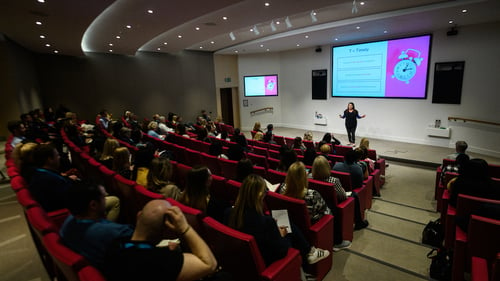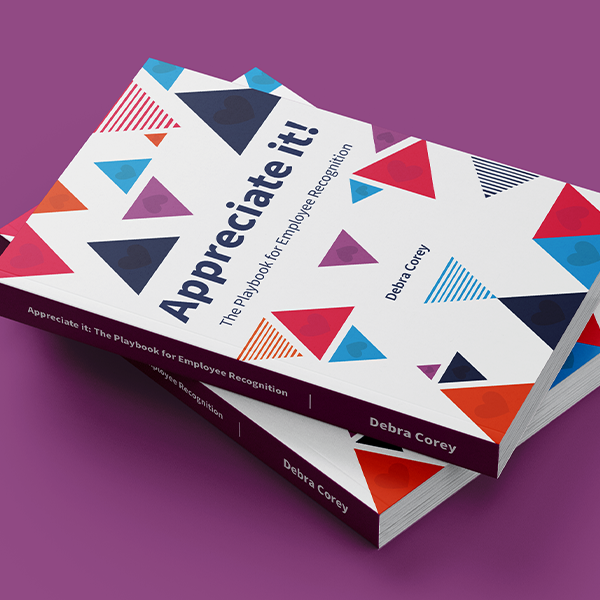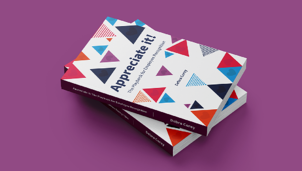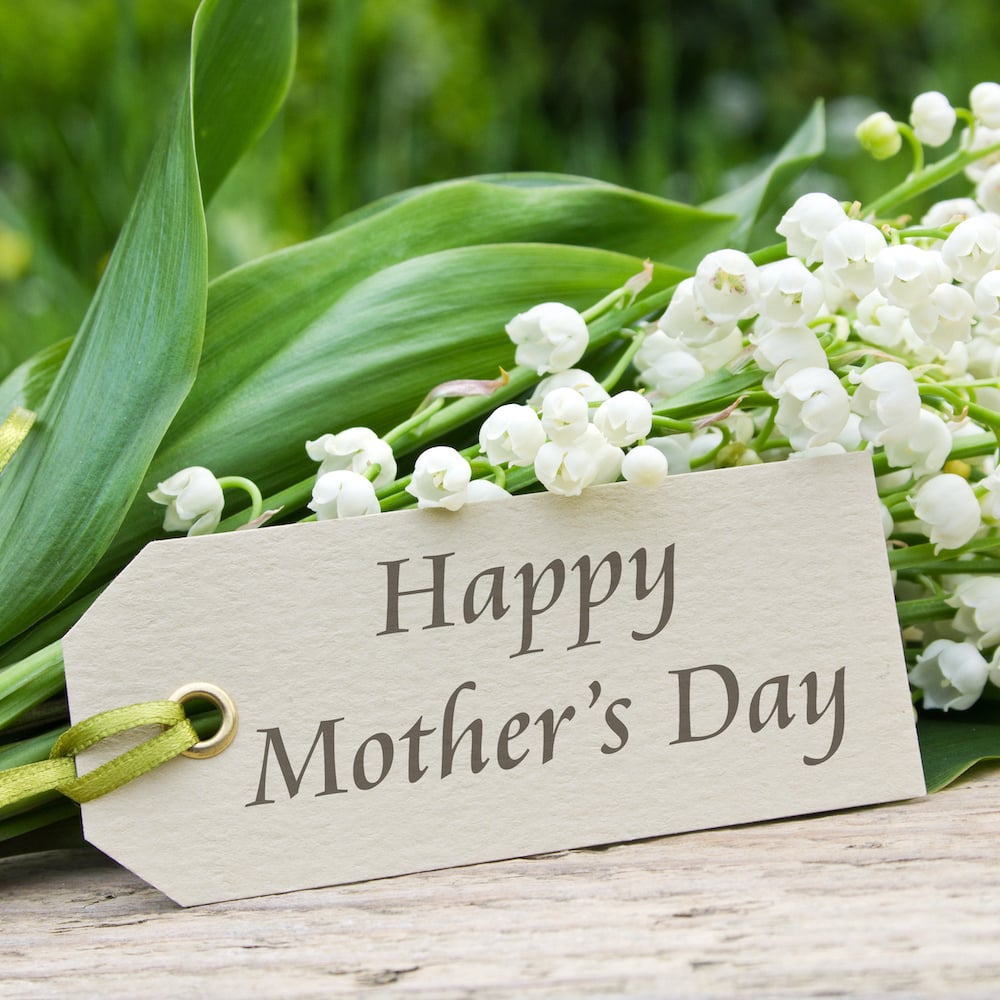Debra Corey has had an impressive career as an award-winning HR leader, world-class speaker and thought leader. She has written four books and has been named as one of the top 101 global employee engagement influencers and HR Most Influential Thinkers.
I recently sat down with the best-selling author to talk about her newest book Appreciate it!: The Playbook for Employee Recognition.
*Meet Debra today at HRD National Summit in Sydney, where she'll be leading a workshop shortly before lunch and can be found at Booth #20 after.
RG: When did recognition become a critical focus for you (in life, or in your job?) Is there a particular moment that stands out?  Debra: I had always taken recognition for granted, as I’d been working for companies that understood the importance of it, and thus had programs in place to support and drive it.
Debra: I had always taken recognition for granted, as I’d been working for companies that understood the importance of it, and thus had programs in place to support and drive it.
It wasn’t until I joined a company that not only didn’t have any recognition programs, but where the senior leaders didn’t understand and support them, that I saw the gap and difference it made when it was missing.
At this company, it was all about results, and there was no acknowledgement and appreciation for actions that led up to them, and I saw and felt the difference it made to my people (and the business).
From here onwards, recognition became a focus of mine, making sure that no matter where I worked, my people felt appreciated and that we had a culture of recognition. Now that I’ve left the corporate world, I’ve continued on this mission, helping and inspiring others so that they don’t experience this problem at their company.
RG: Why did you choose to write this book? Debra: My decision to write this book, alongside the others, is based on delivering against my company’s mission of paying it forward, and specifically whether it meets two main criteria. First, is what I’ve been sharing with others through my talks and consulting something that I believe can make a difference to others if shared more widely. And second, is it a topic that studies have shown need to be shaken up and changed to meet the needs of our people and businesses?
Debra: My decision to write this book, alongside the others, is based on delivering against my company’s mission of paying it forward, and specifically whether it meets two main criteria. First, is what I’ve been sharing with others through my talks and consulting something that I believe can make a difference to others if shared more widely. And second, is it a topic that studies have shown need to be shaken up and changed to meet the needs of our people and businesses?
With recognition, this was absolutely the case, as over and over again I’d hear from people that my approach had helped them to make meaningful change.
And with 65% of employees saying they don’t feel appreciated, and 79% of those leaving their company citing lack of recognition as a key driver, the time for change, and my book, is now.
I’m excited to see the difference it can make in changing how companies approach and deliver recognition moving forward.
RG: Why is recognition so important, especially in 2022 and beyond? Debra: I believe that recognition is more important now than ever for two reasons. First, because it’s a basic need and desire of our people, and if they don’t get it, it could impact how they feel and ultimately how they act. And second, in a world where our businesses face challenge after challenge, where we need our people to be committed to their work and to the company, we need recognition to help us get there. With data showing the impact it can have on employee engagement, sales, revenue, customer service and so much more, it’s a critical business tool and driver, and one that needs to be focussed on and done well if our businesses are going to succeed as they move forward.
Debra: I believe that recognition is more important now than ever for two reasons. First, because it’s a basic need and desire of our people, and if they don’t get it, it could impact how they feel and ultimately how they act. And second, in a world where our businesses face challenge after challenge, where we need our people to be committed to their work and to the company, we need recognition to help us get there. With data showing the impact it can have on employee engagement, sales, revenue, customer service and so much more, it’s a critical business tool and driver, and one that needs to be focussed on and done well if our businesses are going to succeed as they move forward.
RG: How did you go about choosing the companies you featured? Did they all have something in common?
Debra: My goal with the case studies (plays) is to have a real mix of stories, as it's what my readers need to truly help them learn and be inspired. For this reason, I look for companies from different countries, industries, approaches to recognition, and even at different stages of their recognition journey.
The common theme is that they have done something that in their own unique way pushes the boundaries from what they or others are doing.
Many of them are unsung heroes, companies that you may never have heard of, but I believe by sharing their stories it makes them more relatable, and shows my readers that if they can do it, they can as well!
RG: What’s one thing you want people to know about you/this book?
Debra: I’d like people to know that I’m one of them, meaning that before I started writing books, I was an HR professional for over 20 years. Sometimes I got things right, and sometimes I got things wrong, and when I write I use all of these lessons to challenge myself and others to drive the change that is so necessary in today’s workplace.
Regarding my book, I’d like people to know that it’s written to not just be read, but to be actioned.
For this reason I jam in as many practical tips and examples as possible so that people don’t just finish the book excited and inspired, but have the tools to go away and take the steps required to design or update their recognition strategies and programs.
RG: What are your three biggest takeaways from writing this book?
Debra: The first takeaway has to do with understanding and accepting that we all need to step out of and step into new ways of looking at and doing recognition. We need to fundamentally readdress why we recognise, what we recognise and how we recognise, challenging traditional ways of thinking and acting. By answering these questions based on the new needs of our people and our businesses, using them to redesign recognition strategies and approaches, we can all, as I say in the book, put an exclamation mark to appreciation!
 Next, we need to change the order in how we address and approach recognition. We need to begin with the feeling – the reason for appreciation – and from here, deliver on this by building our appreciation and employee recognition programs, our 'say and do,' around this. Build ones where every employee feels appreciated, not just a few. Build ones where we focus on all of the small things that matter and make a difference, and not just the big ones. Build ones that are 'always on' – freely and continuously happening each and every day, and not just every year or every five years. And build ones to create moments and feelings that truly and genuinely matter.
Next, we need to change the order in how we address and approach recognition. We need to begin with the feeling – the reason for appreciation – and from here, deliver on this by building our appreciation and employee recognition programs, our 'say and do,' around this. Build ones where every employee feels appreciated, not just a few. Build ones where we focus on all of the small things that matter and make a difference, and not just the big ones. Build ones that are 'always on' – freely and continuously happening each and every day, and not just every year or every five years. And build ones to create moments and feelings that truly and genuinely matter.
And finally, we need to move to a more inclusive approach to recognition, one where everyone is invited to the party, where we’re all treated as individuals, and which drives a sense of belonging through appreciation.
RG: Did anything stand out from your research survey?
Debra: The results of the survey gave me hope, showing that companies are heading in the right direction when it comes to designing their recognition programs to deliver appreciation in a more timely and effective way. For example, in the past the most common type of recognition plan was long service awards, which meant that employees needed to wait to feel appreciated. However, in my survey this has changed, with the most common plan being 'everyday recognition,' with 84% of companies saying they recognise employees for day-to-day accomplishments, meaning employees receive more 'in the moment' recognition.
Companies are also doing this by leveraging technology, with 69% of companies saying that they’re using eCards to again practice timely recognition.

The other positive change is in the rewards that companies are giving. In the past it was common to have a limited choice of rewards, which often meant that the rewards were not meaningful to our employees. The survey results showed that the majority of companies are now giving their employees choice, with gift cards and vouchers being the most common mechanism for rewarding employees through recognition programs (77% do for everyday recognition, 64% for above and beyond recognition and 53% for best of the best recognition).
RG: Can you describe your recognition superpower or your own recognition style (both giving and receiving)? Debra: My style of recognition links to one of my company values, which is to create magic. I constantly challenge myself to find ways to create magic in how I recognise others, doing what I can to make the wonderful people who help me genuinely feel appreciated. Whether it’s the words I use to convey my gratitude, or in the quirky gifts I select, I do what I can to surprise and delight the recipient as best I can. Yes, it may take more time being a recognition magician, but it’s well worth it!
Debra: My style of recognition links to one of my company values, which is to create magic. I constantly challenge myself to find ways to create magic in how I recognise others, doing what I can to make the wonderful people who help me genuinely feel appreciated. Whether it’s the words I use to convey my gratitude, or in the quirky gifts I select, I do what I can to surprise and delight the recipient as best I can. Yes, it may take more time being a recognition magician, but it’s well worth it!
RG: What’s next for you? Any insight into what you’ll be working on next?
Debra: Now that Appreciate it! has been published, my immediate mission is to drive the content, both tips and stories, to help and inspire as many people as possible.
From here, my next project is to take the key themes from the book and turn it into a handbook for managers. By doing this, it can reach and help even more people understand the importance of appreciation and learn tips and tools to drive it in the most meaningful and effective ways. It would be my first time writing something like this, but I’m excited to give it a go and widen the reach of my attempt to pay it forward not just to my HR colleagues but to managers as well.
RG: How can people stay in touch with you/follow along?
Debra: The best way is to connect with and follow me on LinkedIn. I’m always posting what I’m up to, sharing blogs and what I call 'pay it forward challenges' to help people challenge traditional ways of thinking and acting.
That’s a wrap for now! We hope that this has inspired you on your journey to creating a culture of appreciation at your organisation. If you’re looking for even more tips on how to improve your R&R initiatives, subscribe to our blog!
 Chloe Thompson
Chloe Thompson




